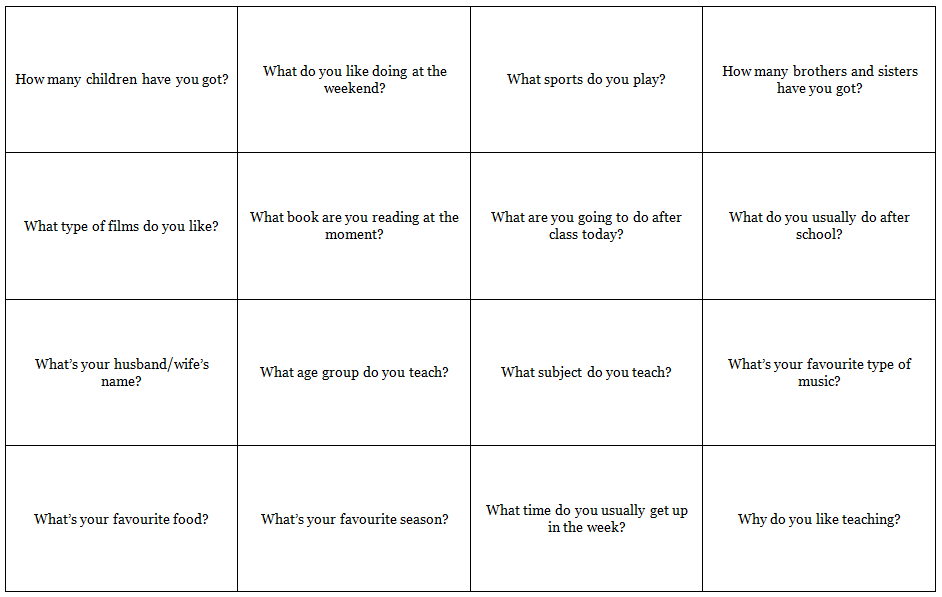I’m not so keen on first-day shenanigans
So the start of term has come and gone and I wanted to share a lesson plan which I used with both my B1 and B2 classes to start the year. I often find those first-day classes difficult to plan for – you don’t always know how many people will turn up, what will their level be like compared to the supposed level of the class and, in my case this year as I was teaching in a new centre, what the classroom environment will be like. I also find that with younger learners, you can easily while away the hour on getting to know you activities and revision games; however, I think as soon as possible we should be getting into “work” and certainly adults are more interested in seeing what a real class will be like than spending too long on icebreakers.
The following lesson plan is suitable for B1 and B2 and involves a task aimed at learners preparing for the Trinity ISE exams, though paraphrasing is also a skill in the Cambridge exams.
Stage 1
Before the class, write the following on the board (adapted to yourself):
- I’m good at being organised and getting up early.
- I can’t stand text-speak.
- I worry about not arriving on time.
- This year, I’m really looking forward to going to Florida at Christmas.
- In the future, I’d love to have my own language school.
Explain to the learners that of these five sentences about you, four are true and one is false. Put them into pairs and give them some time to think of questions they could ask you about the sentences to discover which is false. Monitor and help with question structures.
In WGFB, nominate learners to ask you questions and then invite learners to guess which is the false sentence.
Stage 2
Underline the structures in each sentence and ask learners to identify what comes next: infinitive (with or without to), verb+ing or a noun? Identify which have more than one option. Write the following phrases on the board and tell learners to identify what follows.
- I enjoy…
- I find it difficult to…
- I’m keen on…
- I’m obsessed with…
- I prefer…
- I like…
- I expect…
- I hope…
- I miss…
Monitor and support learners during this stage. In WGFB, you can also look at substitution, such as “I find it easy/fascinating/hard to…” or “I’m terrible/great/really bad at…”
Stage 3
As paraphrasing is an important skill for the Reading into Writing task in the ISE exams, I try to find a moment to practise it in every lesson. There is also an element of paraphrasing in the Cambridge exams, though this is much more structured.
Tell learners to re-write the sentences below using the phrases above (including your original five statements), without changing the meaning of the sentence.
- I hate winter.
- I would rather travel by car than by train.
- I find documentaries about nature very interesting.
- I’m excited because I’ve got fun plans for the weekend.
- Finding my way around new places is easy for me.
Learners can compare their sentences and also discuss if these statements are true for them.
Stage 4
Learners can now personalise the original task by writing five statements about themselves, four of which are true.


